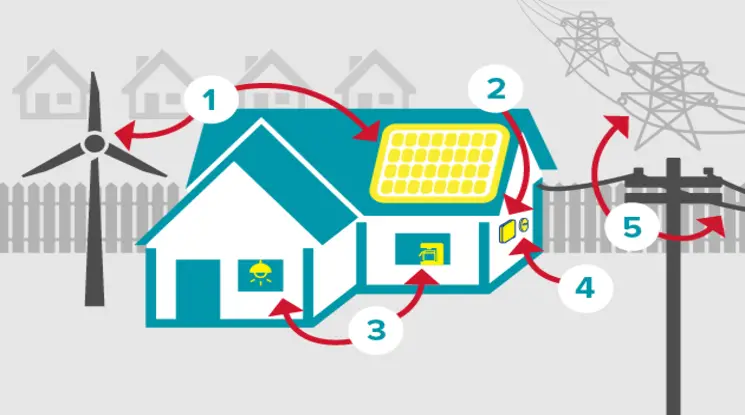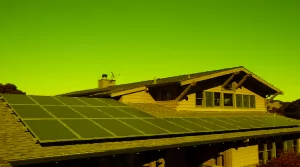In recent years, renewable energy has become a focal point in the global pursuit of sustainable and environmentally friendly power sources. As more individuals and businesses in Virginia explore alternative energy options, net metering has emerged as a key player in the state’s renewable energy landscape. This blog aims to shed light on how net metering works in Virginia, offering a comprehensive understanding of its mechanisms and benefits.
Understanding Net Metering:
Net metering is a billing arrangement that allows individuals and businesses to connect their solar panels or other renewable energy systems to the electrical grid. The key concept is simple: when your solar panels produce more electricity than you consume, the excess energy is fed back into the grid, and you receive credits for it. Conversely, during periods of low energy production (e.g., at night), you draw electricity from the grid.
How It Works in Virginia:
In Virginia, net metering is regulated by the Virginia State Corporation Commission (SCC). The net metering rules in the state provide a framework for customers with renewable energy systems, allowing them to offset their electricity bills through the excess energy they generate.
Eligibility: To participate in net metering in Virginia, you must have an eligible renewable energy system, such as solar panels, wind turbines, or small-scale hydroelectric systems. The system must be interconnected with the utility grid and meet certain technical and safety standards.
System Size Limitations: Virginia imposes size limitations on net metering systems. For residential customers, the system size must not exceed 20 kilowatts (kW), while non-residential customers are limited to 1 megawatt (MW). These limitations aim to maintain a balance between encouraging renewable energy adoption and ensuring grid stability.
Credit Mechanism: The credits earned through net metering are typically expressed in kilowatt-hours (kWh). When your renewable energy system produces more electricity than your home or business consumes, the excess energy is fed back into the grid, and you receive a credit for each surplus kWh. These credits can be used to offset your electricity costs during periods of low energy production.
Annual Settlement: Virginia net metering program operates on an annual basis. At the end of each 12-month billing period, any remaining credits are typically reset to zero. Therefore, it is crucial for participants to monitor their energy production and consumption throughout the year to maximize the benefits of net metering.
Benefits of Net Metering in Virginia:
Cost Savings: One of the primary advantages of net metering is the potential for significant cost savings on electricity bills. By generating your own renewable energy and receiving credits for excess production, you can offset a substantial portion of your electricity costs.
Environmental Impact: Net metering encourages the use of clean and renewable energy sources, reducing the reliance on fossil fuels and lowering greenhouse gas emissions. Virginia commitment to a cleaner and more sustainable energy future is strengthened through the adoption of net metering.
Grid Resilience: Distributed renewable energy systems, like those participating in net metering, contribute to a more resilient and decentralized energy grid. This can enhance grid stability and reliability, especially during peak demand periods or in the face of unforeseen events.
Conclusion:
Net metering in Virginia provides a practical and economically viable way for individuals and businesses to transition to renewable energy sources. As the state continues to prioritize a cleaner and more sustainable energy future, net metering plays a crucial role in empowering consumers, reducing environmental impact, and fostering grid resilience. By understanding how net metering works and navigating the regulations set by the Virginia State Corporation Commission, residents and businesses can harness the benefits of this innovative approach to energy consumption.




